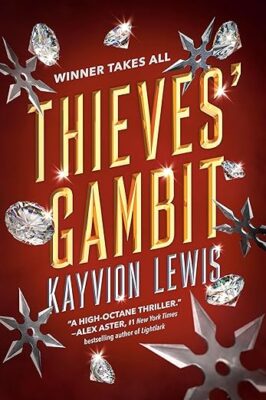Read a full summary of Matilda, written by Roald Dahl, right here! This page is full of spoilers, so beware. If you are wondering what happened in Matilda, then you are in the right place!
Special thanks to Sarina Byron, a BSR contributor who wrote this great recap! Sarina is a British Author and Contributing Writer living in California. Sarina enjoys bringing forth a different perspective and encouraging a different way of thinking through her writing. Visit her blog to read her reviews, and check the end of the review for a link to her Instagram.
Author
Roald Dahl
Ratings
4.6 stars on Amazon
4.33 stars on Goodreads
Add Matilda on Goodreads.
***** Everything below is a SPOILER *****
What happened in Matilda?
Matilda Wormwood was a remarkable child. With a complete vocabulary by the age of one and a half years, she demonstrated exceptional brilliance. By the age of three, she had taught herself to read with the help of newspapers and her mother’s only book, Easy Cooking. Matilda’s parents, however, were not the sort to be interested in their child, even less so in their achievements.
They called her a chatterbox and told her little girls ought to be seen and not heard. Her request for a book was met with scorn by her father. He couldn’t understand why she needed a book when they had a perfectly good television. Left to her own devices for most of the day, Matilda decided to start visiting her local library. No one was likely to notice her absence as her brother was away at school, her father was at work, and her mother played bingo five days a week.
The librarian Mrs. Phelps noticed Matilda read quite fast. She went through all the books in the children’s section in no time. On being asked for a recommendation for a grown-up book she might like, Mrs. Phelps suggested Great Expectations. Day after day, she watched this little creature hunched over the giant book, engrossed in Pip’s adventures. Matilda’s dedication to books inspired Mrs. Phelps to introduce her to the idea of checking books out. That began Matilda’s daily rendezvous with Dickens and Hemingway in her own bedroom.
Matilda’s books introduced her to a world beyond what she experienced with her parents. She realized her father’s business “strategies” were deceitful and their family television dinners were unhealthy and lazy. Vocalizing these thoughts was met with disdain from her family. She decided to teach her father a lesson for using glue to fool his customers by applying super glue to the inside of his hat. He couldn’t take it off for a minute all day, eventually resorting to cutting it off to rid himself of it. Matilda made a smug comment about the tattered fabric still stuck to his head, but she could hardly hope this incident would teach him a permanent lesson.
Mr. Wormwood grew tired of watching Matilda read books. He had no aptitude for or interest in intellectual pursuits such as these. He snatched a book out of Matilda’s hands and ripped it apart, page by page. When Matilda squealed it was a library book, he retorted that buying a new one is now her problem. As soon as her father threw the empty covers in the dustbin, Matilda began planning her revenge. She roped in her neighborhood friend Fred and his pet parrot.
Matilda asked Fred if she could borrow his parrot for the night. The parrot could speak human words, and Matilda had a clever plan to avenge the destruction of her library book. She hid the parrot cage up the chimney and waited until her family was home. The parrot’s “Hello, hello, hello” and “Rattle my bones” terrified her father, mother, and brother. They assumed it was a ghost and never suspected any mischief. The parrot’s overnight stay was a success, and Matilda returned him to Fred the next day with a message that her family adored the pet bird.
Mr. Wormwood dug himself deeper when he accused Matilda of cheating. He was showing off his profits to his son, asking him to add them up, when Matilda responded with the answer. Her mental math was correct down to the pence. Mr. Wormwood felt small as he had needed a paper and pencil to arrive at the same answer. Feeling inferior, he rejected the possibility his daughter was intelligent and decided to call her a liar and cheat.
Once more, Matilda began to plot revenge. Mrs. Wormwood’s platinum blonde hair dye and Mr. Wormwood’s violet hair tonic were stored together in the bathroom. Matilda threw away some of the violet oil and replaced it with her mother’s hair dye. As expected, her father didn’t suspect a thing and generously rubbed the peroxide in his hair. He emerged from the bathroom with his hair already turning color. Mrs. Wormwood screamed when she saw her husband’s dirty blonde mop. He, however, was shocked at their reaction and was horrified when he saw it in his wife’s compact mirror. They all concluded he must have picked up his wife’s bottle instead of his by mistake. No one suspected a thing, and Matilda drew immense satisfaction from her parents panicking about the imminent loss of hair.
Matilda was late in starting school. Her parents, as we know, had no value for education and learning. Yet mercifully, she was able to start at five and a half years old. Her teacher, Miss Honey was the sweetest amongst all the teachers at Crunchem Hall. In sharp contrast to her was the headmistress, Miss Trunchbull. Much like her name, she was difficult and cruel.
On her very first day, Miss Honey discovered Matilda was incredibly talented. She could recite the two times table beyond two hundred eighty-seven. Amazed, Miss Honey decided to push the envelope. She asked Matilda to multiply large double-digit numbers and received an accurate answer. She asked Matilda how she was able to handle such big numbers, and Matilda’s simple answer was that if a small metal calculator could do it, then why couldn’t she. Miss Honey then discovered Matilda was able to read long sentences and had even read books by Charles Dickens.
Miss Honey headed to Miss Trunchbull’s office to talk about Matilda. Normally, she avoided any contact with the headmistress, but her determination to elevate Matilda’s chances motivated her to face her fear. Miss Trunchbull, however, was not interested. She admired Matilda’s father as he sold her an excellent car but denounced the girl as a mischief maker based on what her father had told her. Miss Honey tried to counter that claim, but Miss Trunchbull went further by claiming that Matilda placed a stink bomb under her table. She refused to let Matilda be moved to a senior class as was suited to her aptitude. Miss Honey retreated that day, but she refused to give up.
She borrowed books from the higher grades and started Matilda on a parallel curriculum so she could continue to learn. Miss Honey decided to speak to Matilda’s parents; she was convinced they would have noticed her brilliance and would support her proposal to move her to a higher class. Extracting their address from the school’s records, she found herself in front of a relatively comfortable home. Her experience with its inhabitants, however, was the opposite.
Mr. Wormwood was annoyed their television program was interrupted. Mrs. Wormwood was not any friendlier. Annoyed at having to look away from her television program, she told Miss Honey girls should not be reading and becoming smart. They should focus on being pretty to attract successful men. Comparing her life to Miss Honey’s, she declared herself smarter than the teacher standing in front of her. Nevertheless, Miss Honey tried to convince Mr. and Mrs. Wormwood Matilda could be ready for university in three years. Mr. Wormwood brushed that away saying university education only ruined people. Miss Honey recognized a lost cause when she saw one and promptly abandoned the discussion.
Matilda’s favored friend was a classmate called Lavender. In their first week of school, they were approached by a senior student called Hortensia. The older student warned them Miss Trunchbull—or “The Trunchbull,” as she was popularly known—disliked small children. She used a device called The Chokey to punish those she perceived as naughty. The Chokey was a tall narrow cupboard of cement with bits of glass embedded all over. The door was studded with nails, so the unfortunate prisoner was forced to stand upright without moving an inch. Hortensia boasted being punished in The Chokey six times during her first semester.
A deathly silence fell over the playground as The Trunchbull came looking for her next victim. Amanda Thripp became her target on account of her two pigtails. The Trunchbull disliked little girls with long hair. She swung Amanda around by her pigtails just like she used to swing the hammer as an Olympic athlete. As Amanda Thripp went flying through the air, Matilda wondered why the parents never complained. Hortensia explained the parents were just as scared of The Trunchbull. She was not done for the day, though. She called an assembly after lunch where Bruce Bogtrotter was the prime target. He was accused of stealing The Trunchbull’s cake and ordered to eat a giant one as punishment. Everyone expected him to collapse in the pursuit, but he was determined and made sure to eat every last lick. For once, The Trunchbull was defeated.
Lavender was deeply inspired by Matilda’s story of punishing her father and Hortensia’s boast-worthy run-ins with The Trunchbull. Eager to try her hand at mischievous tricks, she got her chance when Miss Honey announced a weekly test by The Trunchbull. She spent one lesson a week with each class to check on their progress. Lavender was going to make her mark in this lesson. That evening, she trapped a newt from her garden pond and carefully carried it to school in a pencil box.
The Trunchbull’s first target was a boy named Nigel Hicks. She criticized his dirty hands, the spill marks on his shirt, and his bad manners. She tried to catch him out, but he spelt “Write” correctly. Nigel boasted everyone in the class could spell a big word like “Difficulty.” The Trunchbull was insulted the song to learn “Difficulty” only consisted of references to married women.
She then moved on to testing the class on the two times table. Poor Rupert couldn’t give the correct answer to two times seven, causing him to be lifted in the air by his hair. The Trunchbull insisted he repeat two times seven is fourteen before she let him down. Miss Honey pleaded for him to be put down, but it was all to no avail.
Next, it was Eric Ink. He was hauled up by his ears because he couldn’t spell the word “What.” Miss Honey was terrified his ears would come off, but The Trunchbull retorted little boys’ ears are quite firmly stuck. When Miss Honey protested it might cause permanent damage, she was told to get a job at a private school where life was easier.
The Trunchbull justified her actions by quoting errant boys from Dicken’s Nicholas Nickleby. Matilda piped up saying she had read the book. The Trunchbull asked for her full name and told her she was a liar like her father. The car he had sold her had crashed in a pile of sawdust within a week of being purchased.
Miss Trunchbull raved about the need to get rid of small children as soon as possible. Miss Honey tried to stop her, but The Trunchbull’s conviction wouldn’t let her. All this talking inspired thirst, and when she poured the water, out came the newt with a plop. The Trunchbull was convinced it was Matilda’s doing. This accusation started a shouting match between Matilda and her giant Headmistress. Being wrongfully accused aroused intense anger in Matilda, and she began staring at the glass of water with the newt inside from across the room. She focused all her anger and annoyance on it, causing it to tip over. The Trunchbull blamed Matilda for this as well, but she couldn’t argue against the fact that Matilda had not moved an inch.
Miss Honey dismissed class for the day. All that excitement had been quite enough. Matilda, however, could not move on from that afternoon. She had a secret to share with Miss Honey. She knew what she had felt and experienced when she tipped the glass over with her mind. Miss Honey didn’t want to discredit Matilda but rather to gently steer her away from this belief. She asked her to tip the glass from a distance again. Matilda had a harder time bringing her mind to focus but was able to do it. Miss Honey was stunned. She wanted to know more and asked Matilda to come home with her for tea.
Miss Honey lived in a small cottage that was a bit of a walk from the school. This gave them an opportunity to discuss the issue at hand. Miss Honey advised they proceed carefully as they did not know what mysterious forces they were dealing with. Matilda saw no cause for concern.
When they reached the house, Matilda realized Miss Honey was incredibly poor. Although it was a charming little cottage like something from a fairy tale, it was incredibly sparse and did not contain much by way of comfort. Miss Honey heated her water on a Primus stove, ate margarine, and had only one chair. She didn’t take baths; she washed whilst standing up using a bucket. She didn’t even eat dinner; she mostly relied on the school lunch to fill her up. Matilda was appalled, but she was too polite to let Miss Honey find out. They began to talk about Matilda’s powers, wondering whether they were distance or line-of-sight dependent.
When they settled down to a nice tea and toast, Miss Honey shared her story. She was born in a big house not far from her cottage. Her mother died when she was two, and her father was an extremely busy doctor, so he asked her mother’s sister to come help out. Her aunt was horrible at all times except when her father was around. One day when Miss Honey was five, her father passed away under mysterious circumstances. People said he killed himself, but Miss Honey didn’t believe that.
Her aunt’s behavior towards her became worse after her father’s death. She made Miss Honey do all the washing, cleaning, and ironing. Miss Honey was not allowed to go to University, so she negotiated a teacher’s course in nearby Reading. She was still responsible for all the housework after a full day. Her aunt told her she owed her a lot of money for room and board, so all her salary began to go to her aunt, leaving her incredibly poor.
Miss Honey was a determined soul. She didn’t want to be under her aunt’s thumb, so she found herself in this small cottage, which was so bare that her rent was only ten pence a week. Miss Honey rented it on the spot and lived as poor as a mouse. Even five-year-old Matilda knew Miss Honey couldn’t go on living like this. She inquired after her father’s will but discovered the real one was never found. Her biggest shock came when Miss Honey told Matilda her aunt’s name—Miss Trunchbull.
Miss Honey walked Matilda home. They moved in companionable silence, and Matilda only asked three questions. She wanted to know what names Miss Honey’s aunt and father used for each other and for her. Miss Honey gave her the answers but asked Matilda to forget about everything. Matilda couldn’t promise that she would, but she did vow to never mention it to anyone.
Matilda’s secret plan began to take place. She practiced lifting and moving a cigar around telepathically. It took her a week, but she was able to move it exactly as she pleased.
Just like that, it was time for The Trunchbull’s second lesson in Matilda’s class. Miss Honey warned the students to be good with their three times tables and to avoid being smart with Miss Trunchbull. The Trunchbull, however, never played fair. She began asking Wilfred the three times tables in riddles. When Wilfred began to get confused, thinking he was being asked to add up, The Trunchbull turned him upside down.
Before she could harm him like the boys last week, a chalk flew up and began writing a message for Miss Trunchbull on the board. The message used her first name (Agatha), identified the writer as Miss Honey’s father (Magnus), and instructed her to give Miss Honey’s wages and house back. It finished with a threat that if his wishes weren’t fulfilled, he would come for her just like she came for him.
The Trunchbull fell to the floor in a fainting spell. Miss Honey looked across the room at Matilda, who sat very still and motionless, focused on her task. The Matron came to help Miss Trunchbull, followed by three women and two men. They assumed someone had finally knocked her down.
Miss Honey couldn’t help giving Matilda a tight hug and a kiss on the way out.
When she came to, The Trunchbull walked right out of the school and was never seen again. Her house was empty, and Miss Honey’s father’s will mysteriously showed up at her door. She had her house back! Matilda and Miss Honey made some wonderful memories in the house. Miss Trilby was appointed Headmistress, and Matilda was promptly moved up to the top form. Miss Plimsoll found Matilda every bit as brilliant as Miss Honey claimed. Matilda’s powers also disappeared, leading them to conclude they had been given only to help Miss Honey.
Matilda arrived home to find a strange car parked in their driveway and her family frantically running around. Her father impatiently told her to pack as they were moving to Spain for good. As it happened, his thievery had landed him in a tough spot, and he needed to get away immediately. Matilda rushed back to Miss Honey as she didn’t want to leave. Miss Honey came to speak to the Wormwoods but found them uninterested in any reasonable discussion. They told Miss Honey she could keep Matilda if the child didn’t want to leave with them. Matilda chose her teacher.
Miss Honey held Matilda tight as her parents sped away. A new little family was born.
There you go! That’s what happened in Matilda. We hope you enjoyed this Matilda summary with spoilers.
Ready to read Matilda? Click to buy and help us pay for hosting!

What now?
Don’t forget to check out Sarina’s blog, and you can follow her on Instagram!
Follow Book Series Recaps on Instagram and Twitter.
Friend us on Goodreads: Sara and Stacy.
Check out awesome art, quotes and more on Pinterest.
Oh and share this with your friends who might like to read a recap of Matilda.



















